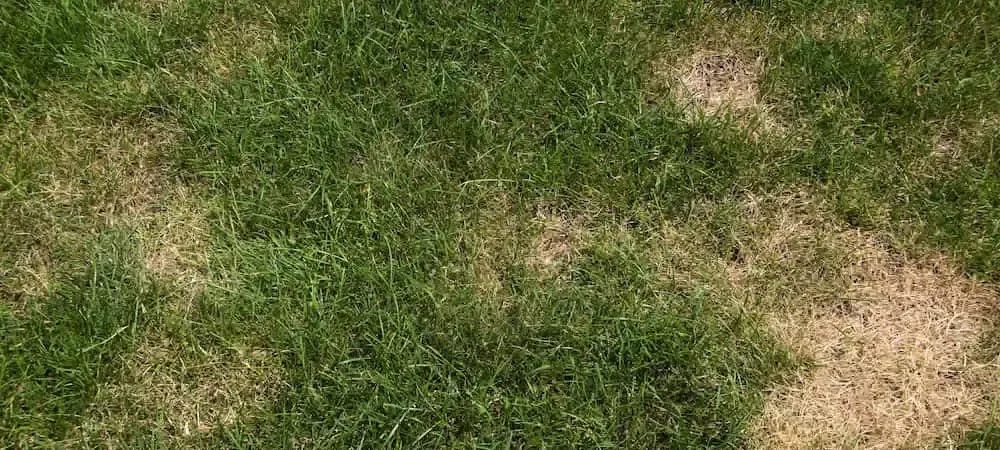Why Does My Lawn Turn Brown in the Summer?

As summer starts to wind down and fall is right around the corner, you may have noticed that your once-green lawn suddenly looks brown and drab. Unfortunately, this is completely normal and most lawns suffer during the hot and humid summer months. From increased foot traffic to an increase in lawn diseases, the summer season can be extremely tough on grass. The experts at Tailor Made Lawns discuss the potential reasons your lawn could be brown, and how to repair it!
Harsh Weather
Just like any other plant, your grass needs sunlight and moisture in order to grow. The harsh temperatures of summer can wear down your lawn, drying out healthy grass, and causing it to turn brown. The hot temperatures and lack of moisture means your lawn isn’t getting the nutrients it needs to thrive.
Heavy Foot Traffic
While the kids are out of school and the weather’s nice, your lawn is likely being used for everything from backyard BBQs to water balloon fights to throwing the ball around. While this may be great fun to be had, it can have a negative impact on your lawn. Increased foot traffic on your lawn leads to compacted soil -- which reduces the amount of air space required for your soil to be healthy. This means the nutrients your lawn needs in order to survive - such as sunlight and water - don’t have the chance to reach the roots of your grass.
Lawn Diseases
While your grass is weak from the harshness of summer, it can be easy for disease to take over. The weaker the state of your grass, the more susceptible it is to lawn diseases. There are dozens of diseases and fungi that your lawn can fall prey to here in North Carolina -- some common ones including brown patch, dollar spot, fairy ring, and more. You can help prevent disease from taking over your lawn by providing consistent care to your lawn -- which includes consistent mowing, watering, fertilization, and more.
Your Pets
While the lawn may be your pet’s area to do its business, this could be causing damage to your lawn in the process. Beyond just digging holes in the soil, animals can turn a lawn brown by urinating in it too often. The urine - mixed with the blistering hot temperatures - can easily leave you with a lawn that is unsightly.
How to Repair a Brown Lawn
While summer can be tough on your lawn, it doesn’t mean that you have to settle for having ugly grass! Now that we know the reasons your lawn may be turning brown, let’s talk what you can do about it. You should:
- Reduce compaction in your lawn with aeration: The process of lawn aeration involves the removal of small plugs of soil throughout your lawn to loosen soil and reduce compaction -- allowing moisture, air, and nutrients to reach its roots.
- Stimulate new growth with seeding: After aeration, the best thing you can do to take advantage of your new, healthy soil is to lay down new seed on top of your existing grass. This helps promote new growth and can eliminate bald spots!
- Implement a regular lawn care regimen: Stronger grass is more resistant to disease and the harsh conditions of the changing climate. Protect your lawn by implementing a regular lawn care regimen so that your lawn is in tip-top shape year round.
Get Help from the Pros
If your lawn is turning brown or showing bald spots, it may be time to call the pros. Having a consistent lawn care schedule that includes lawn fertilization, weed control, disease control, aeration and seeding and more can take up a lot of your time. It’s not only time-intensive, but it also takes an in-depth knowledge of best practices and products to use. Why not let the experts handle it so you can spend your time doing things you enjoy? Here at Tailor Made Lawns, we know exactly what your lawn needs to survive the North Carolina seasons. With over 20 years of experience in the lawn care industry, we can provide your lawn with exactly what it needs and when it needs it.
